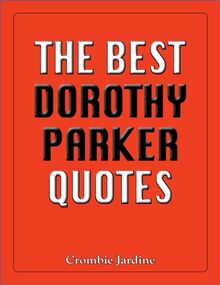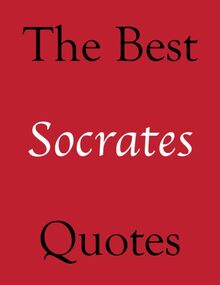-
 Univers
Univers
-
 Ebooks
Ebooks
-
 Livres audio
Livres audio
-
 Presse
Presse
-
 Podcasts
Podcasts
-
 BD
BD
-
 Documents
Documents
-
- Cours
- Révisions
- Ressources pédagogiques
- Sciences de l’éducation
- Manuels scolaires
- Langues
- Travaux de classe
- Annales de BEP
- Etudes supérieures
- Maternelle et primaire
- Fiches de lecture
- Orientation scolaire
- Méthodologie
- Corrigés de devoir
- Annales d’examens et concours
- Annales du bac
- Annales du brevet
- Rapports de stage
La lecture à portée de main
Vous pourrez modifier la taille du texte de cet ouvrage
Découvre YouScribe en t'inscrivant gratuitement
Je m'inscrisDécouvre YouScribe en t'inscrivant gratuitement
Je m'inscrisEn savoir plus
Vous pourrez modifier la taille du texte de cet ouvrage
En savoir plus

Description
Sujets
Informations
| Publié par | Crombie Jardine Publishing Limited |
| Date de parution | 09 février 2016 |
| Nombre de lectures | 0 |
| EAN13 | 9781326559786 |
| Langue | English |
Informations légales : prix de location à la page 0,0120€. Cette information est donnée uniquement à titre indicatif conformément à la législation en vigueur.
Extrait
NOTE
The beauty of e-readers means that a variety of text fonts and type sizes can be selected, according to the reader’s preference. This text has been prepared in Palatino (medium, regular) and so the layout probably works best in this font.
DOROTHY PARKER 1893-1967
Born in Long Branch, New Jersey, on 22 August, 1893, Dorothy Parker (née Dorothy Rothschild) was an American author, poet, screenwriter, critic, satirist and civil rights activist.
Parker started out as a pianist at various Manhattan dance schools, making ends meet whilst writing humorous verse in her spare time.
In 1914 Parker sold her first poem, Any Porch , to Vanity Fair , its editor Frank Crowninshield paying her the sum of $12 for it. In 1916 she was offered a job at Vanity Fair ’s sister magazine, Vogue , where she worked in an editorial capacity (writing advertising copy and picture captions) until 1917. Her sharp, sardonic wit was most apparent in her theatre criticism for Vanity Fair (1918-1920) and in her book reviews for The New Yorker (under the by-line Constant Reader. She contributed to the magazine from 1925 until 1957).
Along with Robert Benchley and Robert E. Sherwood, Parker founded the Algonquin Round Table in 1919. This was a group of writers, including Edna Ferber, Harpo Marx and George S. Kaufman, who would lunch at the Algonquin Hotel and who became known also as the Vicious Circle because of their cutting wit and repartee.
Parker’s short and humorous many poems were published in three volumes: Enough Rope , her first volume of poetry, was published in 1926 and was very successful, and was followed by Sunset Guns in 1928 and Death and Taxes in 1931.
During the 1930s Parker and her husband Alan Campbell moved to Hollywood where they both worked for Paramount Pictures. As a screenwriter, she co-wrote the script for the 1937 film A Star is Born and collaborated on Alfred Hitchcock’s 1940 film Saboteur .
Parker had become a socialist in 1927 and over the years became increasingly politically active. In the 1930s she became involved with the Communist Party and in 1936 she helped found the Hollywood Anti-Nazi League (later known as the American Peace Mobilization). Her activities drew the attention of the FBI who compiled a lengthy dossier on her and she was effectively blacklisted by Hollywood film studios.
Parker died of a heart attack on 7 June 1967 at The Volney hotel in New York which had become her home. She had no heirs and bequeathed her literary estate (including her shares in The New Yorker , copyrights and royalties) to Martin Luther King, Jr. When King was assassinated in April the following year, Parker’s estate went in turn to the NAACP (National Association of the Advancement of Colored People). Parker was cremated and later her ashes were placed in a memorial garden in Baltimore in front of the NAACP’s headquarters, accompanied by a plaque that reads:
Here lie the ashes of Dorothy Parker (1893-1967), humorist, writer, critic. Defender of human and civil rights. For her epitaph she suggested, “Excuse my dust.” This memorial garden is dedicated to her noble spirit which celebrated the oneness of humankind and to the bonds of everlasting friendship between black and Jewish people.
Dedicated by the National Association of the Advancement of Colored People.
-
 Univers
Univers
-
 Ebooks
Ebooks
-
 Livres audio
Livres audio
-
 Presse
Presse
-
 Podcasts
Podcasts
-
 BD
BD
-
 Documents
Documents
-
Jeunesse
-
Littérature
-
Ressources professionnelles
-
Santé et bien-être
-
Savoirs
-
Education
-
Loisirs et hobbies
-
Art, musique et cinéma
-
Actualité et débat de société
-
Jeunesse
-
Littérature
-
Ressources professionnelles
-
Santé et bien-être
-
Savoirs
-
Education
-
Loisirs et hobbies
-
Art, musique et cinéma
-
Actualité et débat de société
-
Actualités
-
Lifestyle
-
Presse jeunesse
-
Presse professionnelle
-
Pratique
-
Presse sportive
-
Presse internationale
-
Culture & Médias
-
Action et Aventures
-
Science-fiction et Fantasy
-
Société
-
Jeunesse
-
Littérature
-
Ressources professionnelles
-
Santé et bien-être
-
Savoirs
-
Education
-
Loisirs et hobbies
-
Art, musique et cinéma
-
Actualité et débat de société
- Cours
- Révisions
- Ressources pédagogiques
- Sciences de l’éducation
- Manuels scolaires
- Langues
- Travaux de classe
- Annales de BEP
- Etudes supérieures
- Maternelle et primaire
- Fiches de lecture
- Orientation scolaire
- Méthodologie
- Corrigés de devoir
- Annales d’examens et concours
- Annales du bac
- Annales du brevet
- Rapports de stage



















